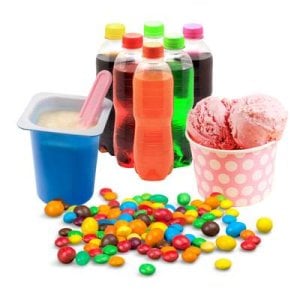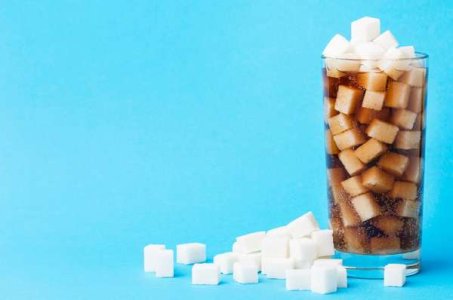SDC Rewards Member
Upgrade yours now
M
Is your diet soft drink habit putting you at risk? Unravel the truth about the potential cancer-causing sweetener
If you enjoy the occasional Diet Coke with your lunch, or you enjoy cans of Coca Cola Zero on a daily basis, then we have some news for you. We’re delving into the scientific evidence to help you figure out whether or not you need to give up your beloved soft drinks for good.
The International Agency for Research on Cancer (IARC) – which is a special branch of the World Health Organisation – has declared aspartame, an artificial sweetener, potentially dangerous as a carcinogenic hazard for humans. But before you panic, let’s take a closer look at what that really means.
First, some background. What is aspartame? This artificial sweetener, also known as Equal, Nutrasweet, Canderel and Sugar Twin, can be identified by its identification number 951 on packaging. It’s like sugar, only 200 times sweeter, and without the calories.
You’ll find aspartame in items such as yoghurt, confectionery, and many diet or low sugar soft drink varieties, including Coke Zero, Diet Coke, and Pepsi Max. Don’t forget desserts and ice cream too!
In Australia, the acceptable daily intake (ADI) is 40mg per one kilogram of body weight a day, or about 60 sachets of aspartame. The ADI over in America is 75 sachets.
So IARC has declared aspartame a Group 2b 'possible carcinogen'. But what does this really mean?
Basically, a hazard is identified as something capable of causing cancer – a risk, on the other hand, measures how likely it is to cause cancer. After examining the evidence from three human studies conducted in Europe and the US, IARC found a positive correlation between artificially sweetened beverages and liver cancer.
The findings from these three large studies indicated that people who indulged in two or more cans of a diet soft drink a week, or even more than two cans of an artificially sweetened beverage a day, may be at an increased risk of developing liver cancer. In fact, the European study mentioned above found that every additional serve of Diet Coke consumed for 11 years added an extra 6% to the risk of liver cancer.
That said, scientists still concluded that the numbers used in the study weren’t particularly high, as liver cancer is already a relatively uncommon cancer.
And what about evidence from animal studies? Scientists noted limited evidence in this area, as well as limited understanding of the biological mechanism of how exactly aspartame might cause cancer.
If a 70kg person were to consume 14 cans of a soft drink per day, they would approach the daily acceptable limit of aspartame. That’s around five litres a day – an unrealistic amount, but not impossible. However, ultra-processed food, such as those containing artificial sweeteners such as aspartame, are believed to be bad for one’s health anyway. Furthermore, artificial sweeteners have been found to encourage people to crave more sugar, leading them to eat more, and possibly gain more weight.
All this indicates that we should definitely be careful with the amount of artificial sweeteners we consume, as they offer no real benefits, and have the potential to cause harm.
With all this in mind, the occasional can of diet soft drinks will likely not put your health in any immediate danger. But since consumption of diet drinks is also linked to other issues such as diabetes, obesity and metabolic syndrome, it’s probably not a great idea to go overboard either. So keep an eye on the number of cans of soft drinks you’re drinking, and enjoy them only in moderation – your body will thank you.
If this article has made you think twice about reaching for your beloved diet soft drink, fret not! Thankfully, Everyday Health listed down healthier beverage alternatives, ensuring you quench your thirst without dousing yourself in potentially harmful artificial sweeteners.
Starting with a popular choice, infused water, a delightfully refreshing drink that can offer a soft drink's sweetness without the health risks. Get creative and make your own with a combination of fruit and herbs, such as slices of lime and a twig of mint, or strawberries mixed with basil. The possibilities are endless, and the result - a fragrant, flavourful drink that tricks your taste buds into thinking you have something sweet.
Another excellent choice is herbal tea. Not only is this beverage hydrating and full of naturally occurring compounds that can promote good health, but there's a variety of flavours to choose from. Try a calming chamomile, invigorating mint, or antioxidant-rich green tea. If you miss your fizzy drinks, why not try brewing your own iced herbal tea and adding a dash of sparkling water? It's super hydrating and just as satisfying as a can of your favourite soft drink.
For those who prefer a little pizazz in their beverages, kombucha, a fermented drink rich in beneficial probiotics, might just hit the spot. Originating from Asia, it’s now popular worldwide for its tangy vinegar-like taste that strangely satisfies soft drink cravings. It's available in many flavours and whilst store-bought versions can sometimes contain added sugars, many suppliers are committed to keeping it healthier than your traditional fizzy drinks.
Lastly, you may wish to look at natural juices. Try freshly squeezed orange, apple or pineapple for a healthy twist! Aim to keep your juices 100% fruit-based, avoiding the processed ‘juice drinks’ which often include unnecessary sugars.
While it may require a small adjustment period to shift from the familiar comfort of diet soft drinks, the plethora of delicious and better-for-you options means it won’t be long before your taste buds adapt. Remember, the goal here isn't to adopt a holier-than-thou attitude about diet soft drinks - but rather to remind ourselves that moderation is key. So, bottoms up to healthier sipping!
Furthermore, here are some simple activities that may lower your risk for cancer!
We hope this article has helped you better understand aspartame, and its potential risks. Let us know your thoughts on aspartame and whether or not you’ll be giving up soft drinks for good in the comment section below!








